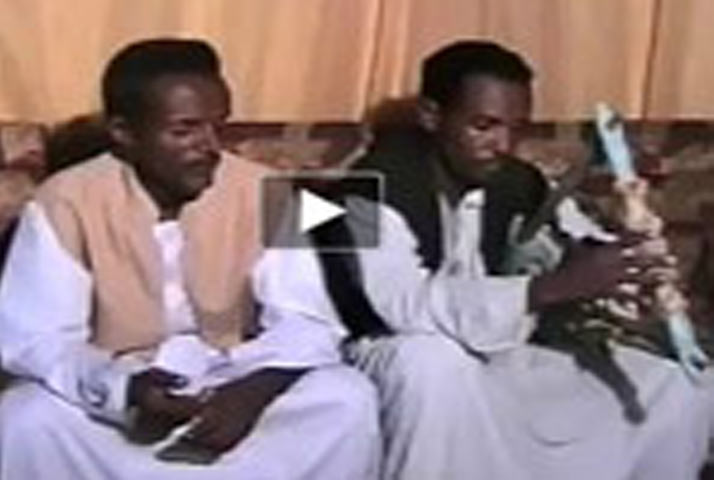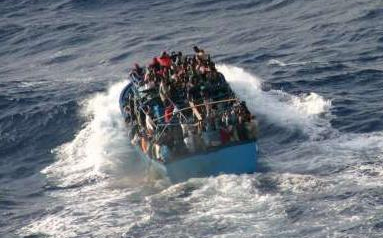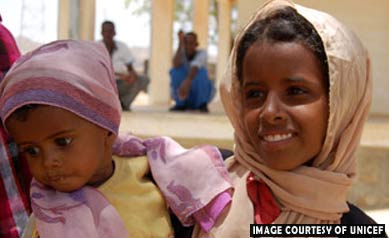Pilgrimage to Gamla Stan: Reflections from Stockholm
Last week I was in Stockholm, invited together with three colleagues from Ethiopia, Sudan and Somalia to address a conference on ‘Democratisation in the Horn of Africa: Processes and Results,’ that was arranged by the ‘Network for Peace in the Horn of Africa,’ an entity that is based there. What moved me emotionally most, and gave me hope, was that almost half of the attendants of the events were women. They were from the whole region, Somalia, Ethiopia, Sudan, Eritrea and Djibouti. Most of them were Muslims, who are relatively regarded as conservative in the West. These women took active part in the cultural events as presenters and as participants in the discussions. Before going to the conference deliberations I would like to share with you my reflections from my former visits to the city.
When the train took off from Oslo Central Station on the way to Stockholm, I started my contemplations, pondering and reflections. I realised the date was 20.02.2002. I did not consciously choose that, it was mere coincidence. I had earlier been on a trip to South Africa on 02.02.2002. I remember the day very well as we were flying KLM; the same day Princess Máxima and Prince Willem-Alexander of the Netherlands were married, so, the flight crew gave us a special treat. I thought then, maybe I was obsessed with twos, maybe I liked February. I have nice memories during that month. The trip also reminded me of my last journey (so far) on the same month a year earlier to Eritrea. I was on the Oslo airport train on my way to Asmara loaded with memories, worries and anxiety of what awaited me when I return there. It was the first time since I signed the so-called ‘Berlin Manifesto’ and I had been out the country and was going there again.
I reflected on my first trip to Stockholm. It was in the summer of 1994, my first strange day in Scandinavia. The sun had refused to set. It felt as if it had an affair with one of the stars and had forgotten to go home. It vividly struck me; I could not sleep for days. At least for those of us in the tropics, we are not only different from the West in terms of the colour of our skin, perceptions, attitudes, needs and cultures, but in our days and nights as well. I felt we had equality in them–it was a form of socialism, and in the West you have excesses of one or the other, depending on the season—maybe that influenced our different approaches and ambitions. During that period I visited Uppsala, Lund and Malmo. I saw the old universities that took you back in time, and fast-rewind you like a tape to a date some 500 to 700 years back.
During my first visit I had stayed close to the Central Station, where the old city, Gamla Stan, was within reach. I immediately fell in love with the name, the architecture, the narrow streets and the crowded market. I have a problem, I easily fall prey to predatory attractions of people, places, events, and to all sorts of products of human mind, be it literary work, paintings or music. I usually end up being a victim to my rapidly-in, difficult-out, naivety. I love to stroll around Gamla Stan everytime I visit Stockholm.
The period of my visit in 2002 coincided with the Muslim pilgrimage to Mecca when millions of people gather every year to reflect and be close to God. The peak day that year was on 22.02.2002. I was on a different form of a pilgrimage to my childhood memories, to memories from my home town where I enjoy meeting my childhood friends. We go back decades to our old jokes and realities, some of them still frozen in space and time. I thought, not only had the west colonised us, blundered our resources, our archaeological artefacts, shattered our old religions and institutions, but thanks to our brutal leaders it has also given us and our memories a refuge. One needed a sojourn to his museum of memories in a Western country.
Every time I am in Stockholm, I am keen to meet Suleiman Bekhit, one of my childhood friends. He is a well rounded Eritrean with a high talent for humour, a Jeberti by origin and a Beni Amer by culture. If he or others like him were born and grew up in the West, they would have been honoured as writers or stand-up comedians. But culturally we undermine them and treat them as liers, ‘gaffal’ in Tigre and ‘hasawi’ in Tigrinya. Isn’t a fiction writer a ‘gaffal’ as well! Suleiman is quick in creating smart jokes. He went to visit Eritrea after liberation and was enthusiastic about free Eritrea and about the opportunities that it presented. He came back supporting the EPLF which brought him in conflict with most of our colleagues who were in the opposition. A year or so after that trip he told his colleagues he was mistaken, ‘it was just that the EPLF propaganda machine had injected him with a strong anaesthetic that had a long time effect’. I am sure that you find such people in every Eritrean linguistic group and in every culture. We need to value such talents.
I also used to enjoy the writings of Dr. Haben at Asmarino; we need such writers to give us a break, a breathing space, a sense of humour—away from the drought and famine of politics.
Going back to the conference: The Horn of Africa is home to more than 100 million people with hundreds of ethnic groups. It is a dynamic multi-racial, multi-cultural, multi-religious region. Its landscape varies from vast formidable deserts to high mountains, plateaus and fertile agricultural areas. It has produced people who are resilient to the adversities of nature and perhaps has contributed to yield tough fighters. It is partly home to the Great Rift Valley. It encompasses pastoral, agro-pastoral and farmer communities. More often than not, clashes between the mobile pastoralists and the sedentary farmers are causes to some of the wars in the region and perhaps potential for further conflicts. It was reiterated during the sessions that the region is: home to the oldest human fossils and settlements; origin of coffee that influenced the political landscape in both Arabia and Europe; source of the Blue Nile and its importance for livelihoods of millions of people; and a the first region that hosted religiously persecuted Moslems from Arabia as refugee by a Christian king—a symbol of religious dialogue and tolerance. The region is home to the ancient Meroic and Axumite civilisations and home to the oldest written scripts in Africa.
The lecture by Engineer Abdi Ashur at the Conference, gave us an insight into the deteriorating situation in Somalia and how it impacts the stability, security and development in the whole region. Participants were made aware how the damping of toxic waste and particularly nuclear waste in the absence of a strong state apparatus would endanger not only the region but the whole continent. It was indicated that piracy in the region has globalized the Somali problem with an increase in insurance premiums for ships operating in the region together with the presence of so many foreign naval fleets in the Indian Ocean. Few weeks ago I was at Ismaelia watching big cargo ships pass by the Suez Canal every few minutes and you can clearly imagine the impact.
Ethiopian Professor Mammo Muchie presented a paper on ‘Searching for workable ideas for embedding and sustaining Peace and Stability in the Horn of Africa’. He presented a model on how it could be carried out. His message was that we share a common destiny and that our success is in our unity. He indicated that we will lose if we follow the politics that rejects all past without distilling the good from the bad and that even the bad can be source of some good. He noted that we must change ourselves to change others and the region and that we need to learn to see things in the region from each other’s (each country’s) perspective. He did not hide his disappointment with Eritrean independence and he believed in a united Ethiopia and regarded it as symbol of colonial resistance in Africa. He stated that he learned more about the greatness of Haile Sellasie from his travels in Africa. We had to tell him that for us in Eritrea, Haile Sellasie was a murderer and that during his reign, entire villages were razaed to the ground in the Eritrean lowlands and that I had to tell him in private that I was a personal witness to the massacre of Ona where people where burned alive. All this could be said without any shouting or provocation and with mutual respect.
Dr. Mohamed Jalal Hashim, a Nubian Sudanese, an ardent Pan Africanist, a specialist on African ethnicity and linguistics with focus on marginalised areas, lectured on ‘Democratisation through sharing power in Sudan’. His presentation was provocative. Contrary to Prof. Mammo’s presentation, he emphasised the role of ethnicity in finding solutions to Africa’s problems. He emphasised the need of regional order and involvement of regional police. He elaborated that when Ethiopians come to Sudan and see Ethiopian police they could feel more secure. He stated that all groups that share Sudanese borders need to be treated as Sudanese. He stated that pastoralism with its mobile characteristics was a time-bomb and that pastoralists need to be settled to avoid further conflicts, at least in Darfur. I commented in a private interaction that he presented a gloomy picture of a disintegrating Sudan. He said, ‘Look Mohamed, this is like a weather forecast, when a storm is coming, you simply say a storm is coming’.
My presentation that was co-authored with my colleague Ahmed Raji was based on elaborate statistics that focussed on how the absence of democracy and militarization negatively impacts equity, enrolment, student flow, teaching capacity and education spending. It was stated that militarization has resulted in lower female participation, increased repetition, dropout rates and poor quality teaching. It was indicated that the system’s capacity to expand, improve quality and respond to the country’s needs have been hampered and that the education system was a huge mismanaged social engineering project.
The Stockholm gathering was also attended by Ambassadors of both Sudan and Ethiopia and a diplomat from Djibouti. The Ambassadors exchanged their views on the lessons learned from the elections in their respective countries. The Eritrean Ambassador could not dare attend the meeting. It was a good opportunity to hear the official viewpoint, too. A very interesting session was, ‘On the role of women democratisation and peace building’ by female panellists from the region. It was heartbreaking to listen to the physical and psychological abuses of women in the region, but inspiring to see women actively engaged to take up the challenge to improve their fate. It showed beyond doubt that we need to involve our women in the quest for peace and reconciliation.
Some of the lessons we learned at the gathering were that we share a common destiny. It was stated that if there was a problem in one country that it will impact the others countries as well. It was emphasised that Somalia need to be assisted to build a strong state apparatus and that it was in the interest of all that there be democratic, strong and viable states in the entire region. The dictatorial regime in Eritrea is a source of instability in the whole region and that Eritrea must not be allowed to be another failed state. The need of a curriculum for peace in the schools in the horn was also mentioned.
In the end, no one claimed ‘We are the Horn’ (the late Michael Jackson’s version of We Are The World). There was no a freelance journalist who voluntarily wrote endless reports on how successful the gathering was. Neither was there a report on opening a new dawn of history for the Horn peoples’ movement. The organisers, the lecturers and the participants were all humble and what mattered most was the substance, away from media fanfare.
.
Dr. Mohamed Kheir Omer was an active member in the General Union Of Eritrean Students (GUES) affiliated to the ELF where he served as a member of the Executive Committee of the Union 1977-78. He joined the University of Asmara as a faculty member after independence where he served as the Dean of the College of Agriculture and Aquatic Sciences 92 – 96. He has authored or co-authored several scientific articles locally and internationally. He was a member of the G-13.




Awate Forum